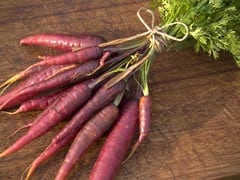Ayurvedic Advice: Good and Bad Practices For The Winter Season
Keshav Sharma | Updated: December 26, 2017 16:59 IST
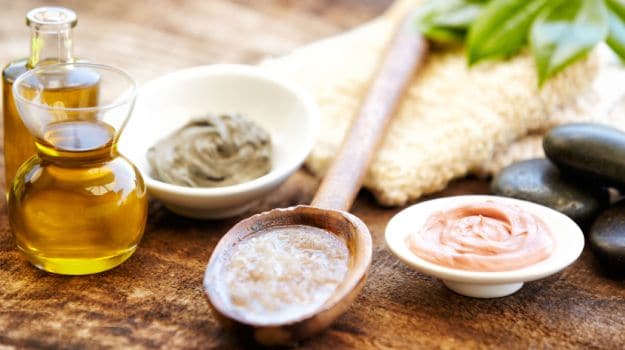 Winter has come. Winter solstice marks an auspicious shift in daylight, causing an imbalance of melanin in our body. The long dark nights of winter can lead to physical slowing down, dryness and fatigue. During these months, we often feel cold and drier. Our skin gets dry, sinuses begin to dry out, and so do the joints. As a result, the mucous membranes in the body start to become irritated and produce more mucus-and mucus is a breeding ground for cold, flu, and other bacteria.
Winter has come. Winter solstice marks an auspicious shift in daylight, causing an imbalance of melanin in our body. The long dark nights of winter can lead to physical slowing down, dryness and fatigue. During these months, we often feel cold and drier. Our skin gets dry, sinuses begin to dry out, and so do the joints. As a result, the mucous membranes in the body start to become irritated and produce more mucus-and mucus is a breeding ground for cold, flu, and other bacteria.According to Kaushani Desai, Ayurvedic cooking expert, author and teacher with The Art of Living, "In winter, or vata season, or Hemant Ritu (16th November - 15 January) and Shishir Ritu (16th January - 15th March), you should eat more nuts, seeds, grains, soups, proteins and healthy fats that are denser and more insulating for the body." Here are some Ayurvedic guidelines that Kaushani Desai suggests to help you warm up this winter season, avoid getting sick, improve digestion and reconnect with the circadian cycles of nature.
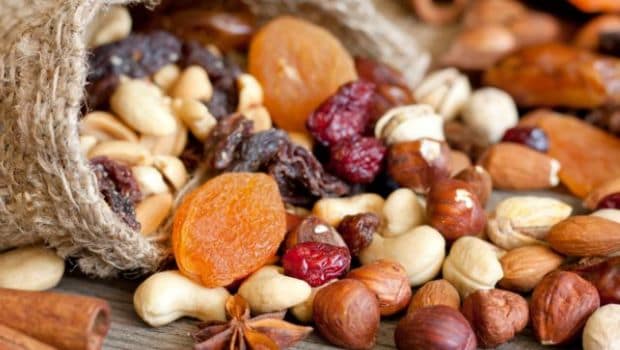
Foods to consume this winter season for optimum health
1. Citrus fruits
Citrus fruits like oranges, lemon, grapefruit, and kiwi are available in abundance in this season and they are the best known sources of vitamin C, a key nutrient for supporting your immune system. A medium orange provides up to 116 percent of your daily vitamin C requirement. The fruit is also rich in flavonoids, a class of antioxidants that may reduce the risk for heart disease, as well as potassium, a key nutrient for regulating blood pressure.
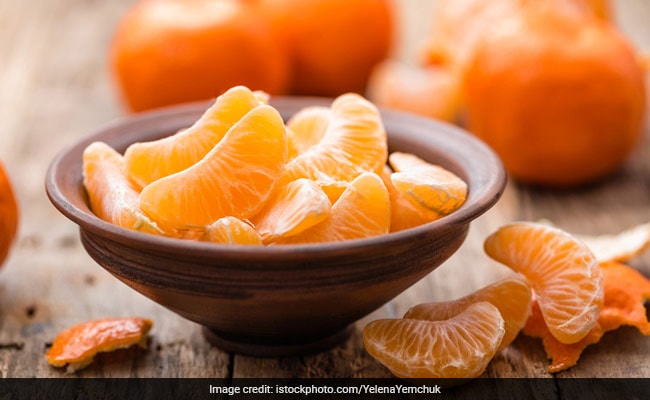
2. Desi ghee
Ghee helps the body absorb and use fat soluble vitamins A,D,E and K. It improves digestion and eyesight, keeps muscles healthy and removes impurities from the body. Omega 3 fatty acids present in ghee help treat dry skin. Ghee hydrates your skin and makes it soft and healthy. You can use Ghee with raw milk and besan or gram flour to make a face mask. Applying the paste on your face regularly during winters, gives you bright and moisturized skin.
 Desi Ghee improves digestion and eyesight, keeps muscles healthy and removes impurities from the body
Desi Ghee improves digestion and eyesight, keeps muscles healthy and removes impurities from the body 3. Hot Water
Water repairs Kapha dosha imbalances. Water consumption early in the morning kick starts your digestion. Water has the ability to flush out toxins from the body and this detox effect helps with problems like acne and obesity. So, if you are suffering from obesity then drinking warm water will do wonders for you.

4. Fermented foods
Other good practices to follow
Oil Massage
Oil is widely recommended in Ayurveda. Massage helps the oil penetrate the skin, presses into tissues and releases toxins such as lactic acid and trapped oils and chemicals that may have seeped in. Sesame, the king of oils is excellent for those old people, or people with Vata afflictions. Kulthi flour (horse gram) is mixed with oil for massage in the technique called Udwartanam. It has got its name "Udwartanam" as during this massage, strokes are performed in an upward movement.

Sunbath
Sunbath is recommended in the Shishir Ritu (16 January- 15 March). Sun exposure is an excellent source of Vitamin D and it also replenishes our melanin stores.
Exercise and Yoga
Exercise is a must during winters. To prepare your body for winter health, inverted poses increase circulation of lymph that moves through the body picking up bacteria and viruses and filtering them out via the lymph nodes. A decent set of three sun-salutations can do wonders.

Four foods to avoid this winter season
1. Spicy foods
The onset of winter makes us crave for spicy foods with an extra dash of fat. Fried and coated chillis, pakoras and frequent trips to the canteen for hot samosas are the orders for the season. Excess of spicy food may cause dosha imbalance. Spicy food does not warm up the body even though you may sweat after having them. Medically speaking, spicy food stimulates pain receptors in the tongue, and a response is generated which dilates blood vessels of the skin and there is a loss of heat from the body in the form of sweat.
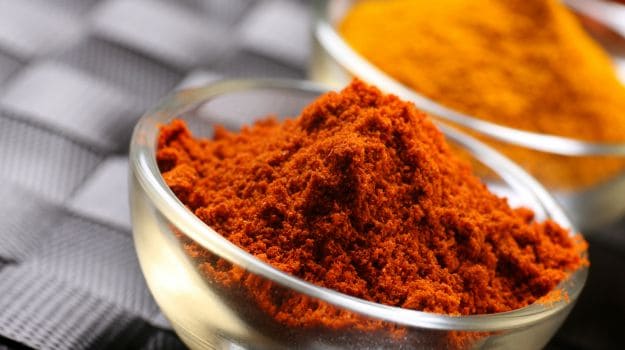
2. Pre-cooked foods
All pre-cooked, overcooked, canned, reheated leftovers, refrigerated, frozen foods and processed foods are Tamasic foods. Gorging on Tamas-dominated food should be avoided by all body types during winters, as they are heavy to digest and lack life force or Prana. When taken in excess they can make you dull.
 All pre-cooked, overcooked, canned, reheated leftovers, refrigerated, frozen foods and processed foods are Tamasic foods
All pre-cooked, overcooked, canned, reheated leftovers, refrigerated, frozen foods and processed foods are Tamasic foods3. Sweets and aerated drinks
We tend to have more cravings for sweets during winters because carbohydrate-rich foods cause blood sugar levels to spike, which raises blood insulin levels. When this happens, the amino acid tryptophan travels up to our brain, where it is converted to serotonin - a hormone that makes us feel happy. But their excess consumption causes insulin resistance. So, sweets and aerated drinks should be consumed in limited amounts during this season.

4. Heavy to digest food
Meats are tamasic and hard to digest. It takes longer to digest meat and that makes the body a bit lazy and lethargic.
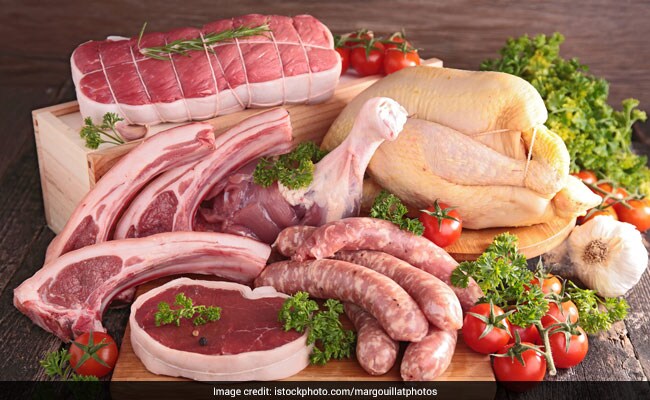
Follow these simple tweaks and tips to keep yourself healthy, active and protected during the winter season.
The Art of Living's international team of experts has introduced the knowledge and real essence of Yoga and Ayurveda to millions all over the globe, not just as a set of physical exercises and diet regime but as a deeper science that discusses them as a union of the mind, body, and soul.
Advertisement
Latest Articles
- 5 Things You Should Not Do After Your Meal
- This Food Is Lit: Best Flambe Dishes For People Who Love A Little Drama
- 10 Regional Dishes You Must Try In 2018
- These Kitchen Gadgets Should Be On Your Shopping List For 2018
- Salman Khan Turns 52: The Foodie Secrets of the 'Tiger Zinda Hai' Star
- 5 Benefits Of Eating Kaali Gajar During Winters
- White Turmeric: How It Is Different From Yellow Turmeric And Its Health Benefits
- From Wine To Coffee, 6 Foods Used In Spa Treatments Around The World
- What is Bathua? Make These Lovely Greens A Part Of Your Winter Diet
- New Year 2018: 8 Popular Food Traditions From Around The World
Advertisement
